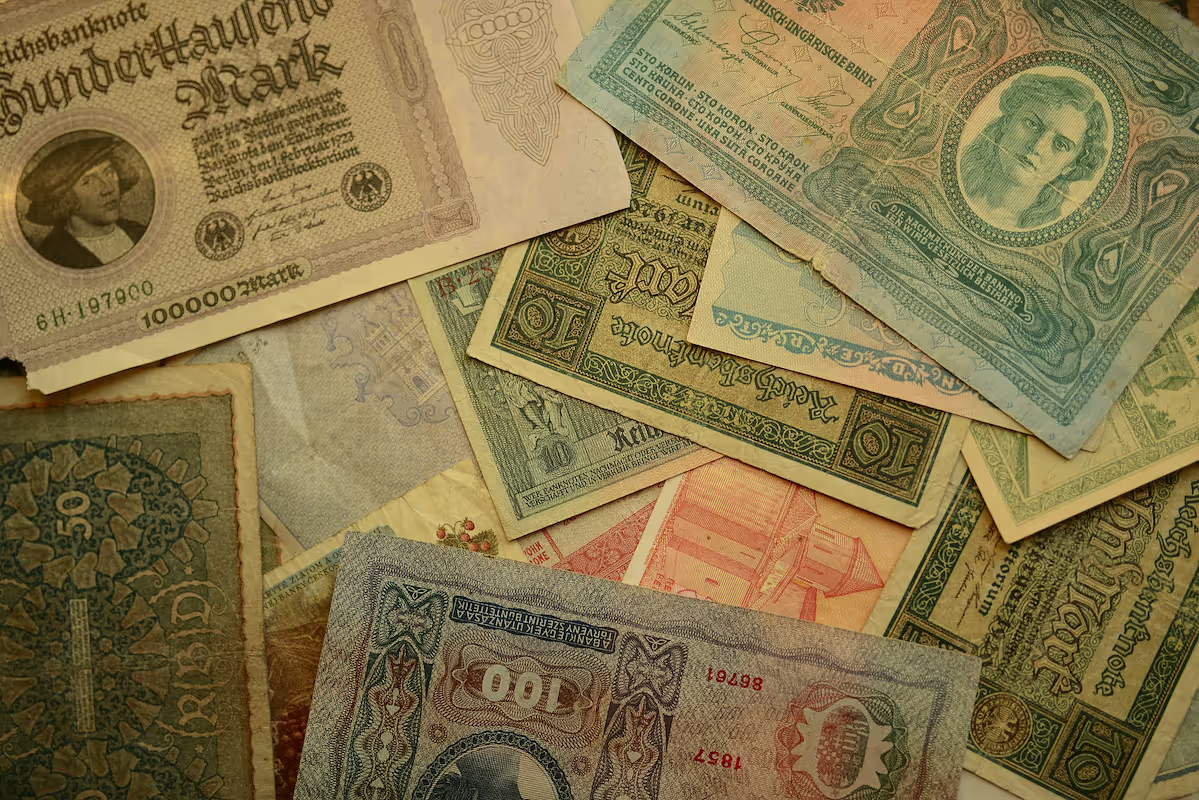
Kudos has partnered with CardRatings and Red Ventures for our coverage of credit card products. Kudos, CardRatings, and Red Ventures may receive a commission from card issuers. Kudos may receive commission from card issuers. Some of the card offers that appear on Kudos are from advertisers and may impact how and where card products appear on the site. Kudos tries to include as many card companies and offers as we are aware of, including offers from issuers that don't pay us, but we may not cover all card companies or all available card offers. You don't have to use our links, but we're grateful when you do!
Does Interest Affect Your Credit Score?
July 1, 2025


Quick Answers
Interest rates and APRs are not direct factors used in credit scoring models to calculate your score.
Indirectly, high interest can increase your minimum payment, and any resulting late payments will damage your credit history.
Similarly, accumulating interest can raise your overall balance, which can elevate your credit utilization ratio—a critical element of your score.
What Is an Interest?
Interest is the price a borrower pays for the use of money, typically expressed as an annual percentage of the principal amount. It compensates the lender for the risk of lending and the inability to use those funds elsewhere. For the borrower, it represents the cost of obtaining credit for significant purchases or investments.
The rate of interest you are charged is directly tied to your credit score, which lenders use to assess your financial reliability. A strong credit history and a high score can qualify you for lower interest rates, as you are considered a lower-risk borrower. Conversely, a lower credit score often results in higher interest rates to offset the increased risk perceived by the lender.
How Interest Rates Can Impact Your Credit Score
While interest rates don't directly factor into your credit score, a significant hike can trigger a domino effect that indirectly harms your credit. Here’s how that progression often unfolds.
- Rising Interest Rates: The process typically begins when interest rates on variable-rate debt, like credit cards, increase. This raises the cost of carrying a balance, making your existing debt more expensive.
- Increased Minimum Payments: As interest charges grow, lenders often raise your minimum required payment. A larger portion of your payment now covers interest, slowing down your progress on paying off the principal.
- Budget Strain: The higher minimum payment can strain your personal finances, making it more challenging to cover all your bills. This financial pressure is the critical link between interest rates and your credit health.
- Negative Credit Impact: Ultimately, this strain can lead to late or missed payments, which directly damages your payment history. It can also cause your balance to grow, increasing your credit utilization ratio—both of which will lower your credit score.
How Much Will Interest Affect Your Credit Score?
While interest rates do not directly calculate into your credit score, they can have an indirect effect on the primary factors that do. Consider how fluctuating interest can influence your overall credit standing.
- Increased Minimum Payments: Higher interest rates lead to higher minimum payments on your debt. This can strain your budget, increasing the risk of missed or late payments which directly harm your credit score.
- Higher Credit Utilization: Interest charges add to your outstanding balance each month. This can increase your credit utilization ratio, a significant factor in credit scoring models that can lower your score.
How You Can Avoid Interest Affecting Your Credit Score
Pay Your Balance in Full
The most effective strategy is to pay your entire statement balance before the due date each month. By clearing your balance, you prevent interest from accruing, which keeps your overall debt from growing and impacting your credit utilization ratio over time.
Utilize Grace Periods
Take advantage of your card’s grace period—the window between your statement date and payment due date. Paying your full balance during this time means you won't be charged interest on new purchases, effectively neutralizing its potential impact on your credit profile.
Ways to Improve Your Credit Score
Improving your credit score is an achievable goal that relies on consistent, positive financial behavior. By following some proven methods, most people can see meaningful changes to their score within three to six months.
- Monitor Your Credit Reports Regularly. Obtain your free credit reports from all three major bureaus—Experian, TransUnion, and Equifax—to identify and dispute any inaccuracies that could be hurting your score.
- Establish Automatic Bill Payments. Since payment history is the most significant factor in your score, setting up automatic payments is a simple way to ensure you never miss a due date.
- Reduce Your Credit Utilization Ratio. Aim to keep your credit utilization below 30% by paying down balances, requesting credit limit increases, or keeping old accounts open to maintain your available credit.
- Become an Authorized User. You can be added to a trusted friend or family member's credit card account to benefit from their positive payment history and low utilization.
- Diversify Your Credit Mix. Lenders prefer to see a healthy mix of credit types, such as revolving credit from cards and installment loans like auto or personal loans.
- Limit Hard Inquiries. When shopping for new credit, use prequalification tools and try to submit applications within a short window to minimize the impact on your score.
The Bottom Line
Using Interest typically won't impact your credit score. However, failing to make payments on time can lead to negative reporting to credit bureaus, potentially lowering your score.
Frequently Asked Questions
Do high-interest rates directly lower my credit score?
No, the interest rate on a loan or credit card is not a direct factor in credit scoring models. However, high rates can make payments less affordable.
Can refinancing for a lower interest rate hurt my credit?
Initially, yes. Refinancing requires a hard inquiry and opens a new account, which can cause a temporary dip in your score before it recovers with on-time payments.
Does the interest on my credit card balance affect my score?
Not directly. But carrying a balance that accrues interest increases your credit utilization ratio, a key factor that can significantly lower your credit score over time.

Supercharge Your Credit Cards
Experience smarter spending with Kudos and unlock more from your credit cards. Earn $20.00 when you sign up for Kudos with "GET20" and make an eligible Kudos Boost purchase.
Editorial Disclosure: Opinions expressed here are those of Kudos alone, not those of any bank, credit card issuer, hotel, airline, or other entity. This content has not been reviewed, approved or otherwise endorsed by any of the entities included within the post.





















.webp)
.webp)
.webp)
.webp)















